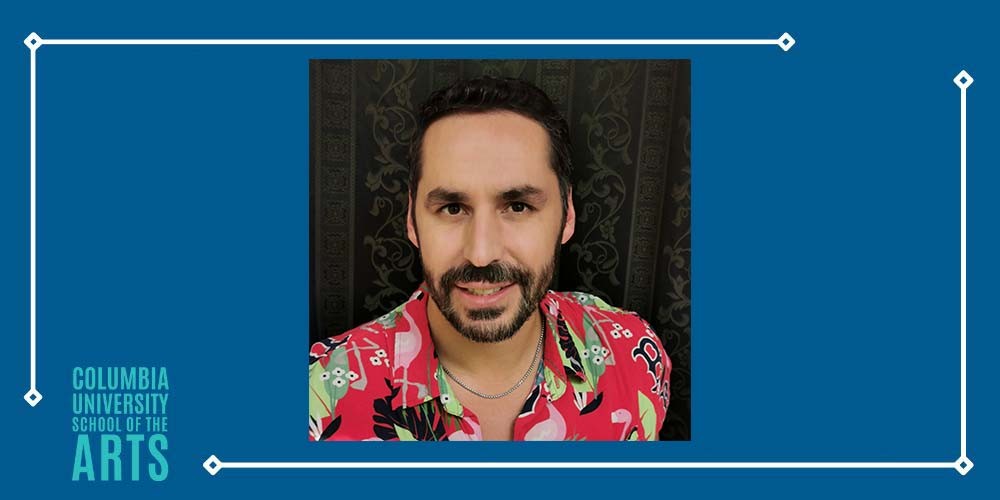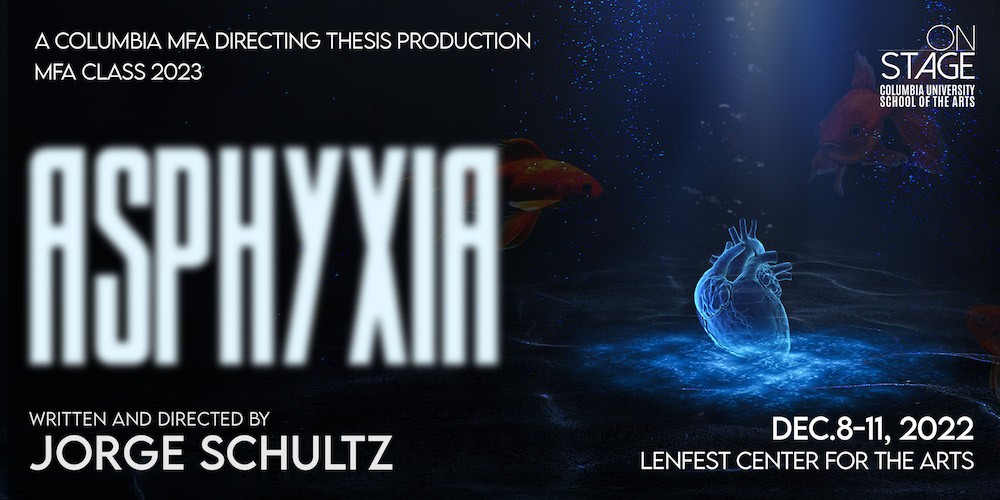Directing Thesis Interview: Jorge Schultz

For the second directing thesis production presented at Lenfest this fall, Jorge Schultz presents Asphyxia, a poetic psychological thriller that follows a detective receiving inpatient treatment after the serial killer murdered his partner and takes the heart away. We sat down with Jorge to discuss his background, the inspiration for the piece, and the fascinating task of adapting a piece from a different language.
What inspired Asphyxia, which is a piece you wrote (originally in Spanish)?
Yes, I wrote it 15 years ago in Spanish. I think failure and the impossibility of “perfect” love inspired me. I know it sounds dark, but it was my way to cope with that harsh truth and try to find freedom and hope in a moment of despair.
What was the process like translating it from Spanish to English? How do you think that informed the overall project?
More than a translation it was a process of adaptation. The play not only needed to be adapted to the new language but also to the new times. We needed to work with the text to adapt dialogues because it includes well-known phrases, metaphors, and cultural references in Spanish that Americans don't understand, and also make it contemporary. Many things have changed in the last 15 years, in the world and in me. That's why I worked with two talented dramaturgs (Spanish/English). Both of them helped me track the play elements to make it more accessible to 2022.
How has your international directing experience influenced this production?
I am very drawn to expressionism and I think people are going to see that in this show. The exploration of movement and forms that escape reality and transform relationships, interactions and gestures into concepts, signs and symbols.
What are you hoping audiences take away from this production?
I consider this play to be a modern myth. Joseph Campbell, one of the best mythologists of our time, believed myths help people to express what it means to be human in the midst of so many unknowns. I think if the play can be even a tiny speck in the universe of storytelling that contains that rare power, I would consider that a win.
Do you have a personal philosophy for directing?
Concept as the center of everything. Collaboration as the best tool. And that only in a good and nurturing environment these could grow.
What kind of work do you want to be directing in the next five years?
I'm drawn to stories that talk about human behavior. I'm interested in how people think and relate. That's why I created the show "Sabor" in which we used a recipe book as a metaphor of love language in South America to creatively explore Latin American forms of expression. I think I will keep exploring that. I would also love to delve into musicals and the challenges that they could bring.
You have a sex education podcast on the side. Can you talk a little bit more about your passion for this subject area?
I do. But now it's on standby because of grad school. The podcast was created following my interest in human conduct and behavior. I don't consider myself an expert in the subject; I'm only a facilitator. SXON is a talk show that encourages people to talk about sex in order to create a healthier relationship with this particular way of human interaction. We have different people from various fields open to conversations that in most cases are considered taboo. I believe my journey on that podcast is connected to the sexual content and conversations that you are going to find in this play.
